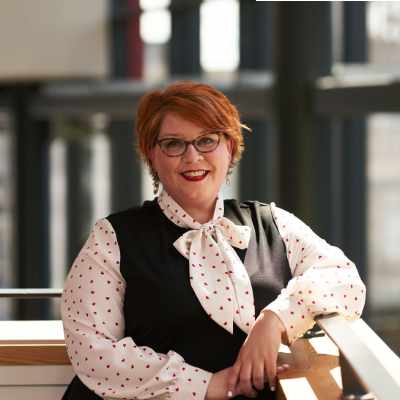A University of Strathclyde PhD candidate is doing her best to further climate change mitigation efforts after developing a global intelligence hub for climate litigation. Kate McKenzie is working with Strathclyde Inspire to develop the ‘Climate Change Legal Initiative’ (C2LI), which focuses primarily on the three most common scenarios in climate change litigation:
1. individuals suing a government for an inadequate climate policy
2. individuals suing a government entity over project approval that has climate impacts
3. individuals suing private entities for climate related reasons
It aims to provide easily accessible, relevant information about existing climate cases and, crucially, report on countries where such litigation has not yet been brought. Here, C2LI can focus on other cases and laws that inform potential future climate-related lawsuits.
After completing a degree focusing on Environmental Law, Kate began her career as an attorney in the United States, working in a variety of mediation and dispute resolution areas, including social justice. Despite doing important work, she felt frustrated by not being able to actively participate in environmental and climate change related issues. So, she decided to enrol in a Master’s degree in Global Environmental Law & Governance at the University’s Strathclyde Centre for Environmental Law and Governance (SCELG).
Kate recalls that during her first year, Professor Francesco Sindico taught a session on climate change litigation. After enquiring about how to get more involved in the field, Kate began working with Francesco as a Research Assistant on the book he was co-editing, called ‘Comparative Climate Change Litigation: Not the Usual Suspects’.
Following the completion of my LLM, I wanted to stay at SCELG due to the incredible community and interesting projects going on, as well as continuing to work with Francesco on C2LI. So I decided to pursue a PhD. I was really lucky to receive an in-kind studentship to the One Ocean Hub from the Law Faculty, and as a result was able to directly connect my research to both the ocean and climate change litigation.
Kate and Francesco began building on the idea that the information contained in Comparative Climate Change Litigation: Not the Usual Suspects could serve as the basis for an accessible, relevant, and up-to-date information hub, if they could find the right vehicle to distribute it – and the idea for C2LI was developed.
In 2021 Kate got in touch with Strathclyde Inspire and took part in its Stage Gate Process for spin-out companies, and C2LI has now made it through gate 2, which means the company is focusing on carrying out broad market research and further developing C2LI into a social enterprise.
After engaging with Strathclyde Inspire, Kate was introduced to external partners who she says have been invaluable in understanding the market landscape and developing a portfolio of potential service offerings, and received access to experts who have advised on legal structures, potential funding sources and more.
The resources available through Strathclyde Inspire are tremendous and, depending on your journey, there are so many different potential avenues for inspiration and assistance. You just have to stay curious and find what works for you.
The next big step for C2LI includes securing funding to allow the company to fully operate with a small staff and continue expanding the web portal as an open access resource. Within the next five years, Kate and Francesco aim to have a robust team, including research staff who can expand and continuously update the web portal’s global coverage on climate litigation, along with a strong portfolio of clients for whom they provide regular research reporting and trainings.
According to Kate, drive, ambition, curiosity, and stamina are all essential attributes of a successful entrepreneur, as well as a willingness to handle constructive criticism and learn from mistakes. She advises anyone who wants to become an entrepreneur to do as much research as possible, but to be flexible and prepare for setbacks, so they will be less stressful when they happen. She said:
Be open to new information, new people, new ideas, and things taking much longer than you thought they would. Ask questions whenever you can and learn how to network if you don’t already have that skill. Make as many connections as you can whether you believe they are directly relevant to your current situation or not. You never know who in your extended network might have the precise skill or contact you need.

